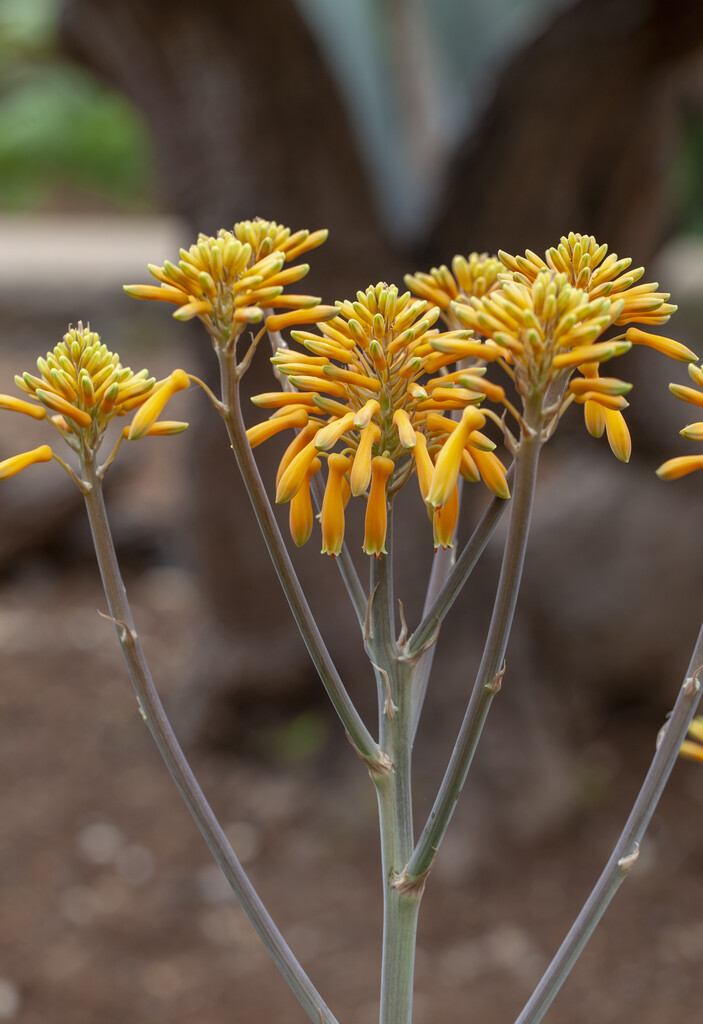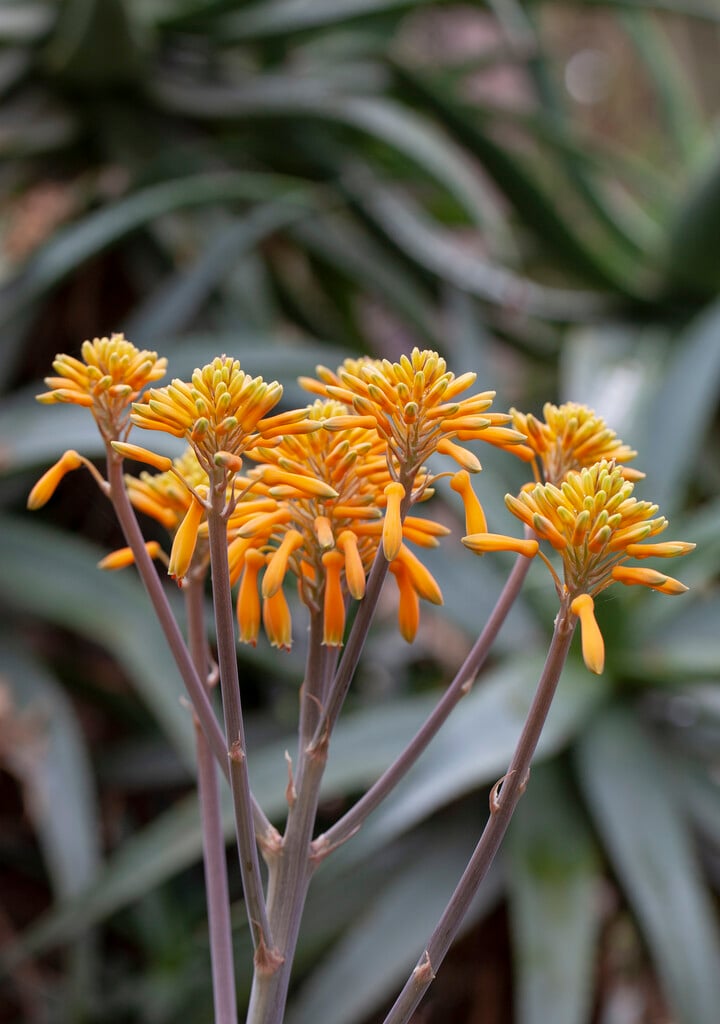Aloe maculata
soap aloe
A stemless or short-stemmed succulent about 70cm tall, with thorny blue-green leaves which are strongly speckled white and form a neat, fleshy rosette. In early spring, spires of light orange flowers are held on tall branched stems, forming a flat-topped flowerhead
Size
Ultimate height
0.5–1 metresTime to ultimate height
5–10 yearsUltimate spread
0.5–1 metresGrowing conditions
Moisture
Well–drainedpH
Acid, Alkaline, NeutralColour & scent
| Stem | Flower | Foliage | Fruit | |
| Spring | Orange | Green Blue White | ||
|---|---|---|---|---|
| Summer | Green Blue White | |||
| Autumn | Green Blue White | |||
| Winter | Green Blue White |
Position
- Full sun
Aspect
South–facing or West–facing
Exposure
ShelteredDrought resistance
Yes Hardiness
H1CBotanical details
- Family
- Asphodelaceae
- Native to GB / Ireland
- No
- Foliage
- Evergreen
- Habit
- Tufted
- Potentially harmful
- Human/Pets (dogs, cats, rabbits): Harmful if eaten. Wear gloves and other protective equipment when handling For further information and contact numbers regarding pets, see the HTA guide to potentially harmful plants
- Genus
Aloe can be mat-forming or shrubby evergreen perennials, with rosettes of fleshy leaves and small tubular flowers in racemes or panicles
- Name status
Correct
- Plant range
- S Africa, Zimbabwe, Botswana
How to grow
Cultivation
Grow indoors in a container of peat-free, cacti potting compost, or peat-free, loam-based potting compost with added horticultural grit. Water moderately when in growth, very sparingly when dormant in winter. Apply a general liquid fertiliser monthly from May to August. Can be placed outdoors in summer, see aloe cultivation for further advice
Propagation
Propagate from seed or leaf cuttings or by separating plantlets from the base
Suggested planting locations and garden types
- Architectural
- City and courtyard gardens
- Gravel garden
- Patio and container plants
Pruning
No pruning required
Pests
May be susceptible to mealybugs, red spider mite and scale insects
Diseases
Generally disease-free
Love gardening
Sign up to receive regular gardening tips, inspiration, offers and more
View our Privacy Policy
Get involved
The Royal Horticultural Society is the UK’s leading gardening charity. We aim to enrich everyone’s life through plants, and make the UK a greener and more beautiful place.

